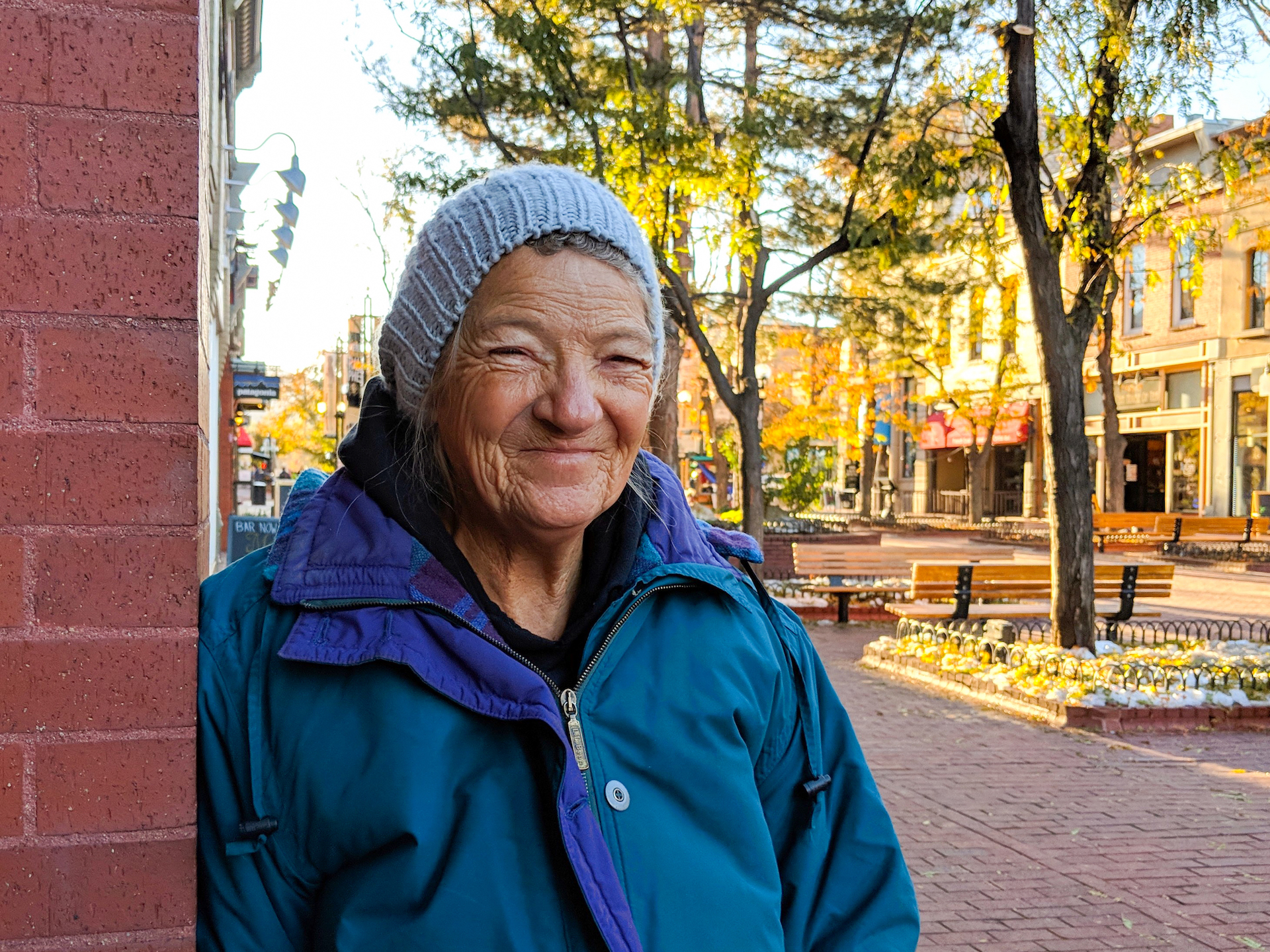On the streets of Downtown Denver or Pearl Street, we often times tend to ignore the people that are holding up signs or asking for food or money as we walk by them on our way to a restaurant or bar. We have these prejudices and put the blame on them for getting in themselves in these situations. But have you ever wondered about the lives these people have lived before they became homeless? What obstacles and circumstances they faced that put them in their current situation? Forgotten Neighbors does just that. In a very Humans of New York format, Forgotten Neighbors mission is to re-humanize the homeless by telling their stories — their trials and tribulations. There are currently three storytellers for the organization — Colombia University student and founder of Forgotten Neighbors, Kareem Abukhadra; Brown University graduate and Los Angeles-based multimedia writer, Jackson Cantrell and junior mathematics student at CU Boulder, Keegan McNamara. All three storytellers share a passion for telling stories, but most of all, together they want to mitigate the problem of homelessness within our nation in any way they can.
303 Magazine had a chance to sit down with McNamara, to learn more about Forgotten Neighbors and what makes him passionate about this organization and the problem of homelessness.
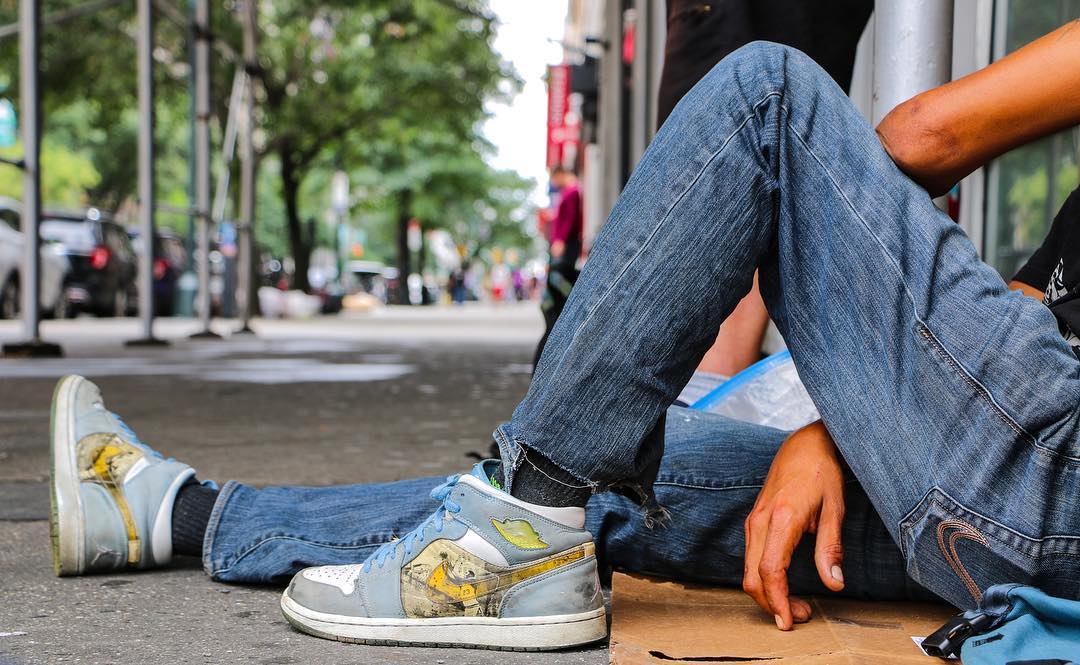
303 Magazine: What is Forgotten Neighbors?
Keegan McNamara: Forgotten neighbors is, I would say at the moment, an attempt to bring empathy to the majority of everyday people about the homeless. We’re not trying to solve homelessness, we’re not trying to completely eradicate it because at the moment it’s just a few people getting stories. But what we can do is really make Joe Schmo who is on Facebook or Instagram — those are where our pages are — read the stories. And like I said earlier, empathize is the best word I can think of, connect with the homeless on a level that they may not have [had] before. Or perhaps, also just dispel some delusional beliefs that are completely unfounded on the basis of evidence… There are just three writers right now, but we are in the process of bringing on more.
303: What’s the main goal or mission with Forgotten Neighbors?
KM: It’s sort of two-pronged. I’d say that on one end, it’s what I mentioned — I’m just making more people empathize with the homeless and the conditions that they face and just realize that they’re human beings just like anybody else and in someone’s life. Then on the other side, we’ve also found that it’s extremely cathartic for the people that we talk to and it’s a really wonderful experience for them… We all have grand illusions about being able to give away a couple of thousand dollars each person we interview and really pick their life up off the ground… Getting to interact with someone and have a long conversation where they acknowledge your humanity is a really powerful experience for them and most people thank me profusely. They absolutely love it. And it’s a uniquely humanizing experience for the homeless as well as for [the people] on the other side…
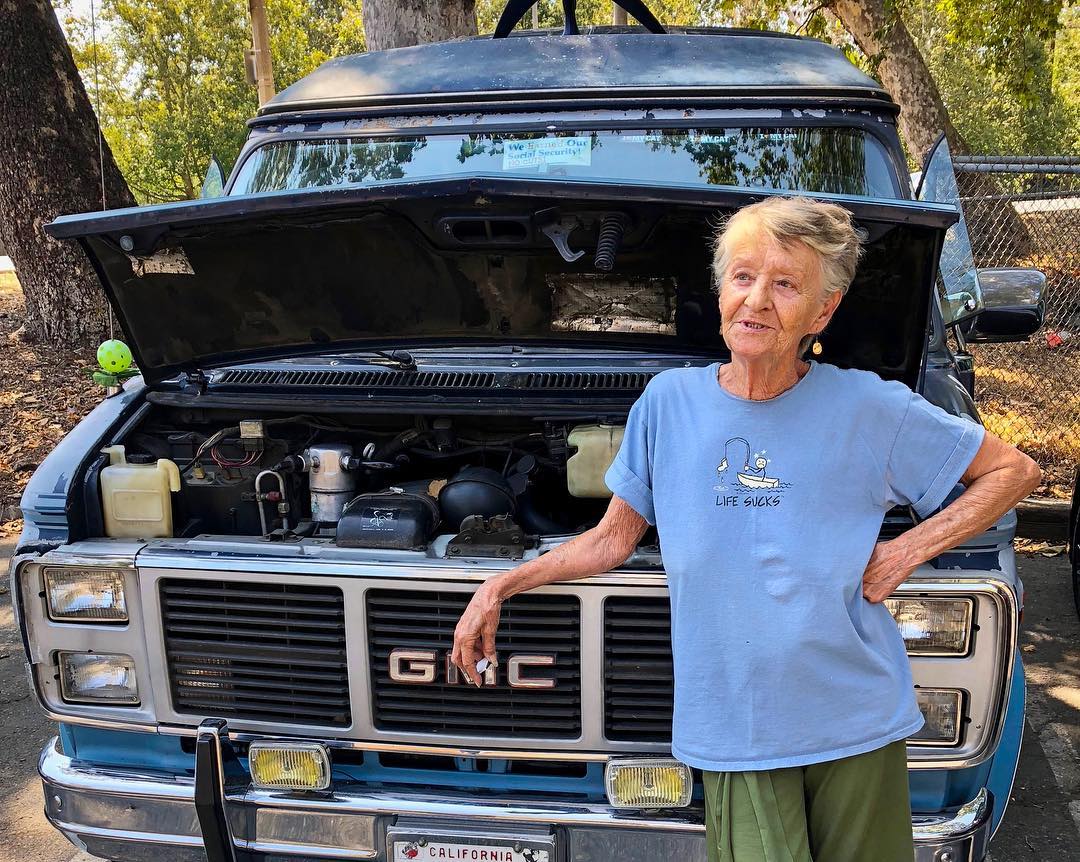
303: Why did you decide to get involved with Forgotten Neighbors?
KM: So originally, I’d thought of doing something similar with old folks in nursing homes — figuring out times to go in and sit down to interview them and then perhaps post the interviews online in some format. And I hadn’t really thought through it all that much… And then seeing Kareem’s efforts already out there and him having done a wonderful job with some of the early stuff I was like you know it might be better for me to just jump on this as opposed to redoing all of the stuff that he’s done already. And then, in addition to that, I grew up in Louisville so like 10 minutes outside of Boulder, and I volunteered at homeless shelters and sort of grew up around the community of the homeless here as well. You know I just think it’s an important problem, and I think that this is a really good avenue for helping alleviate it… I think that I’ve noticed that the homeless are sort of seen as like a “them” in sort of an “us versus them” structure… And they live outside of that like an abstraction… a paradigm. We often dehumanize … and what we try to do is just step beyond that sort of societal mindset… they’re still humans. So just trying to break down that like mental barrier that a lot of people don’t even realize they have is important and that’s another reason why we do it.
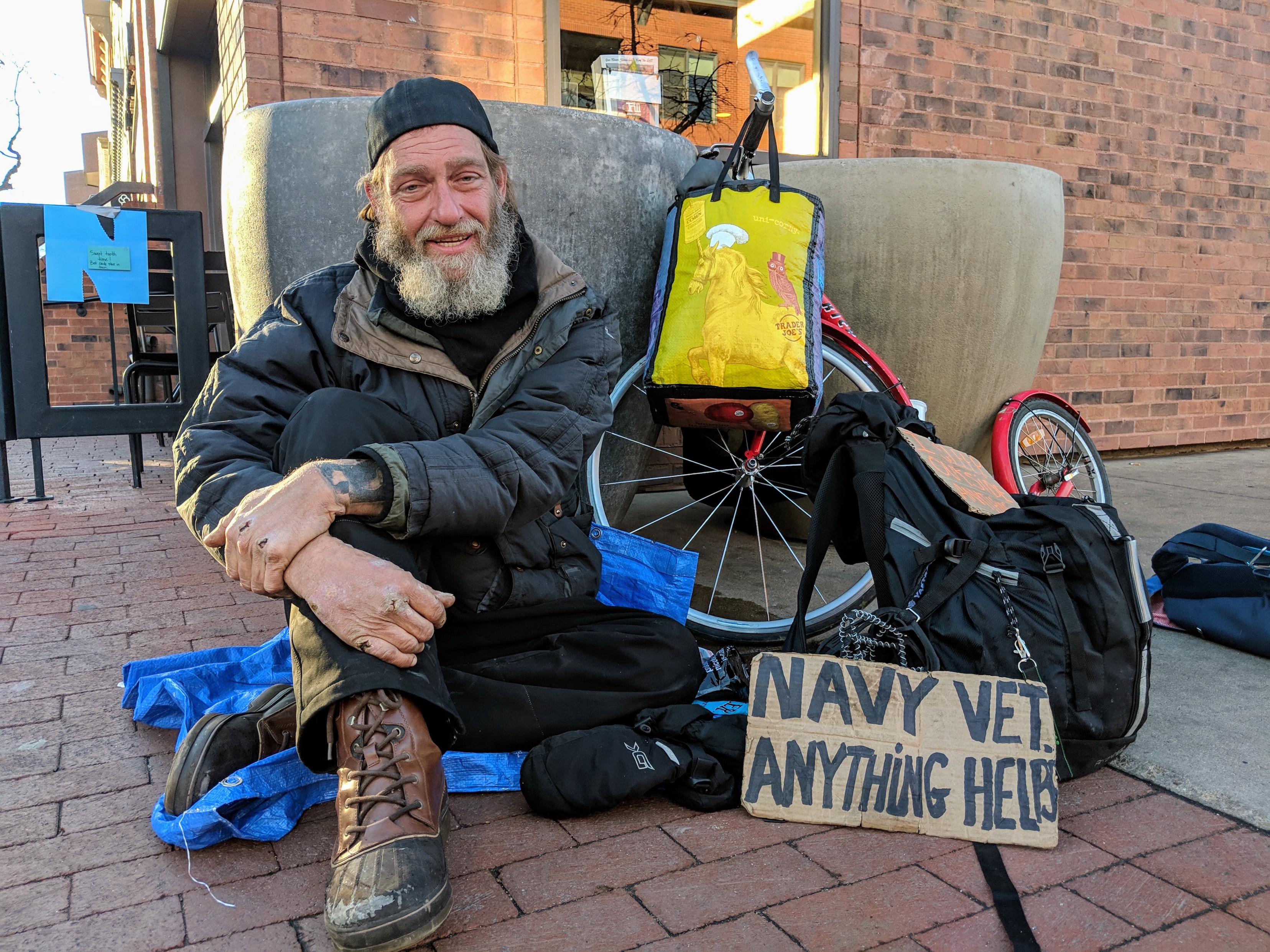
303: What is the process like when trying to find an interviewee? Do you come across difficult people? Where do you go?
KM: What I tend to do primarily — and this is just because there’s the highest density and also just because people are usually asking actively — but on Pearl and the Hill are the two primary places that I go. It’s a lot sparser during the winter just because a lot of people tend to migrate to warmer climates… Once I’ve gone to those two areas I usually try to find people that are actively inviting interaction. If somebody is closed off and clearly not wanting to talk, I’m not going to instigate it — there’s no point and that’s sort of disrespectful to who they are and their wishes and their autonomy, frankly. So I usually go up and talk to people that are actively holding up signs or requesting help or inviting interaction [in a] social sense and those interactions tend to be the best. But I mean that’s not to say that I haven’t had good interactions with people that are sort of closed off but just more so seem lonely and I mean a lot of it is just like social reading, frankly, like body language and tone of their voice when you speak to them. Usually, it’s people that are actively inviting discussion, but I’ve also had really meaningful discussions with people who aren’t.
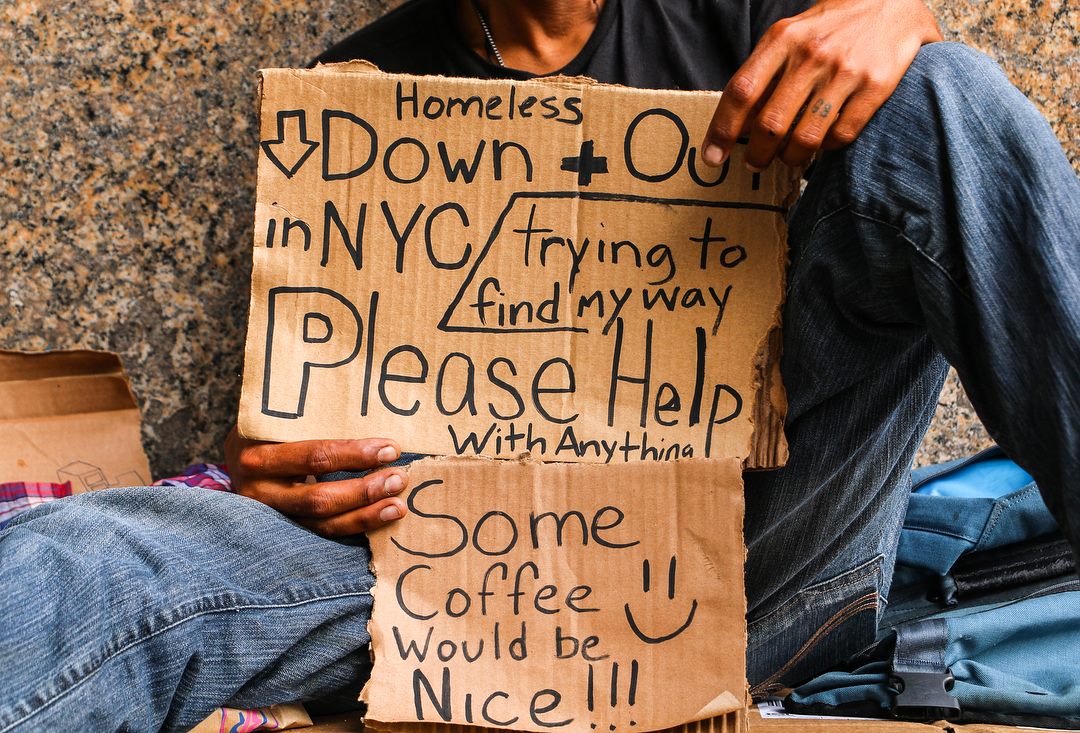
303: Did you have any journalistic experience before? Or is writing and interviewing something you’ve always excelled at?
KM: Frankly no I didn’t have any journalistic experience prior. I’m not an extremely socially awkward person, so I was like “okay I can probably do it.” It’s funny — the comparison that usually [works] is that it’s like talking to someone you have a crush on in middle school — you’re nervous, you don’t want to make them uncomfortable, but you also want the interaction to go well. It’s sort of similar. When I first went out there, [I had] sweaty palms… also want to make it a meaningful conversation… No concrete prior journalistic experience, sort of, decent social skills, and then the help of somebody else [Kareem] who’d been doing it for a while. It made it a lot easier for me. But that said, when we were bringing on new people a lot of them will often find it difficult to actually make that push and go out. It can be difficult to go that first time and to sort of step over the line, and put yourself out there for these things. It can be difficult if you’re a newbie, and you’re nervous but at the same time it is just a conversation if you have the right guidelines and it’s not bad at all. It’s fairly easy.
303: How many stories of people have you heard so far? Describe your first one. If you can recall it.
KM: I don’t really keep track numerically of how many I’ve done. I’ve posted three stories on our page, but that said, the funnel is very different so it’s like as I’m sure you know not every single interview you do ends up being a story worthy of publishing. I would guesstimate around like 15 people that I’ve talked to total in conversations, in length ranging from like 20 minutes to an hour and 20 minutes outside just talking to someone. So my very first one… I was with this woman down on Pearl Street and I think she was holding up a sign asking for weed in a joking manner. I thought it was a funny sign. So I came up to her and I offered — this is sort of my general scheme — I offered her a Clif bar or some sort of other food. And then ask if I’m okay to sit down and just hang out and chat for a while and then afterward I ask if they’re okay doing an interview. I remember I think I gave her like an inordinate amount of Clif Bars because I felt bad, and I didn’t know how to appropriately read the entire situation and also use my resources correctly. I think I gave her — I would guess like maybe an entire box of Clif Bars when in reality, you know, people really appreciate one or two and then I have enough to go out and talk to other people as well.

303: What’s your favorite story that you’ve heard so far? Published or not.
KM: So I hesitate to pin one down as a favorite, but I guess one of the most surprising ones that I’ve had was, I talked to this guy and he was from Boulder and he was almost the exact same age as my dad. My dad grew up in Boulder as well so I was like “oh my gosh this is probably someone that my dad knew growing up.” And here he is out on the streets begging and having an extremely hard time with life in general. And my dad’s sitting at home doing work for his job, and that was very stark just to start it off. And then we were talking about the cold weather, this is like maybe November or December, and we were talking about the cold weather and how that influenced him. And he said that he never had any desire or inkling of leaving Boulder for a warmer climate, even during the really, really brutally cold winters just because he grew up here. And again, you sort of think that these people should just do certain things so that if you were in their situation you would do certain things…But at the same time, regular human beings are definitely not logical at all… That also sort of blew me away just like oh man I’d been thinking about this in totally the wrong way… and then also he mentioned sort of offhandedly that one of his friends had died outside in the cold in Boulder, and I believe that there’s an article in The Daily Camera about this man. I think his name was Benji. I knew about all this afterward when I researched it a bit more… So that was one of the more surprising interviews that I’ve done [where] a string of things that I wouldn’t have thought about prior were jolting or jarring. But again, none of them are better or worse. It’s as equally unique and surprising with every person.
303: What meaning do you hope people will gain through the stories of the homeless?
KM: What I talked about earlier. Just a realization that we all share a common humanity as opposed to them being outsiders in the societal view. I think that’s really, really important. And I think that’s one of the most powerful sort of narratives that you can have for your life just interacting with anybody, frankly, it’s not just the homeless. It’s refugees, it’s any disadvantaged group that you think of as being a “them”… We all have wants and dislikes and shitty stories and great memories and family members and all these different things that make people humans. And I think that narrative is really powerful. So that’s what I try to cultivate. And that’s what I think we as a broader organization try to cultivate in people as just taking down a barrier of us versus them and then getting to a deeper “we,” which sounds very philosophical but that’s how I think about it.
303: Does Forgotten Neighbors have any plans for the future?
KM: Yeah. So our plans right now are just to expand in terms of storytellers. It was Kareem first and then I joined and then I got a few stories and now I’m sort of doing more of the administrative work and really trying to grow it as an organization as opposed to just being a storyteller. I think it’s around 25 different individuals who have expressed interest. So we’re trying to just cultivate those relationships and actually get them to a point where each of them are doing meaningful work. But in terms of the future, it’s definitely growing. The [number] of storytellers that we have and just getting sort of a broader set of stories and experiences and places and people on our pages — that’s the most immediate thing.
—
Forgotten Neighbors is continuously looking for new storytellers from cities around the world, visit the site to find out how you can join their mission. Catch up on stories on Instagram and Facebook.
*This interview has been shortened and edited for clarity.





